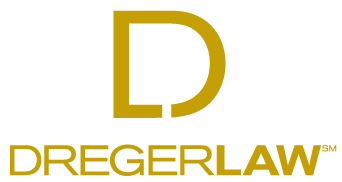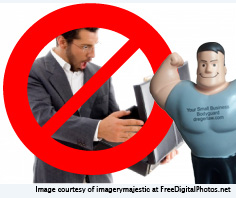In my last post, I presented an overview of the types of fraud that currently are being perpetrated using Cashier’s checks. In this post, I will provide my recommendations on how to best protect yourself from this type of fraud.
Since a cashier’s check is designed to be issued by a banking institution, many people automatically trust the paper it’s printed on without a second thought. But advanced printers and clever scammers have proven that such blind trust can be a costly mistake.
Sadly, it can be difficult to figure out if a cashier’s check is counterfeit or not. In fact, your bank may not even know until the other bank returns it as unpaid and this could easily take weeks to be discovered. Today’s con artists do everything they can to make the check look as authentic as possible in order to delay the detection.
Protect Yourself
But there are ways you can protect yourself from becoming a victim of cashier’s check fraud. Some important things to keep in mind are:
- Don’t do business with strangers. While it’s not always possible to know each person with whom you engage in business relations, it’s best to be cautious about accepting checks from individuals you don’t know. If you enter a business deal with someone you’ve never met before, make the effort to verify information about the buyer from an independent third party.
- Consider escrow services or online payment systems when selling goods or services. When you use escrow systems or processing services such as PayPal, the money is then held until it clears. So you have an extra layer of protection from fraud. However, there are escrow services that scam people as well. Also, the online payment system can include expensive fees. That’s why it’s crucial to be careful and do your research.
- When accepting a cashier’s check, be suspicious if it is for more than your selling price. The key to a majority of these scams is that you’re expected to wire an excess amount of money to a third party. So it’s logical to wonder why a complete stranger would provide you with funds that are the property of someone else. This should immediately serve as a warning.
In general, if you receive correspondence of any kind that claims you’re entitled to a large sum of money and you only owe a small fee, that’s a red flag. The rule of thumb should always be that if something seems too good to be true, it probably is a scam.
If you choose to do business with someone who offers you a cashier’s check, remember to save every document associated with this transaction. The paperwork may be very valuable if a problem with this deal surfaces down the line.
Caution and good sense are important whenever you enter into any business deal. So don’t jump into a transaction that involves a cashier’s check until you have thoroughly investigated every detail. Otherwise, you could be left owing a large sum of money and possibly losing an expensive product to scammers in the online marketplace.
As a final matter, remember that the best way to avoid becoming a victim of Cashier’s check fraud, is to only conduct business transactions in which all funds are delivered to your bank by a wire transfer. Wire transfers are cash and essentially fraud-proof.

